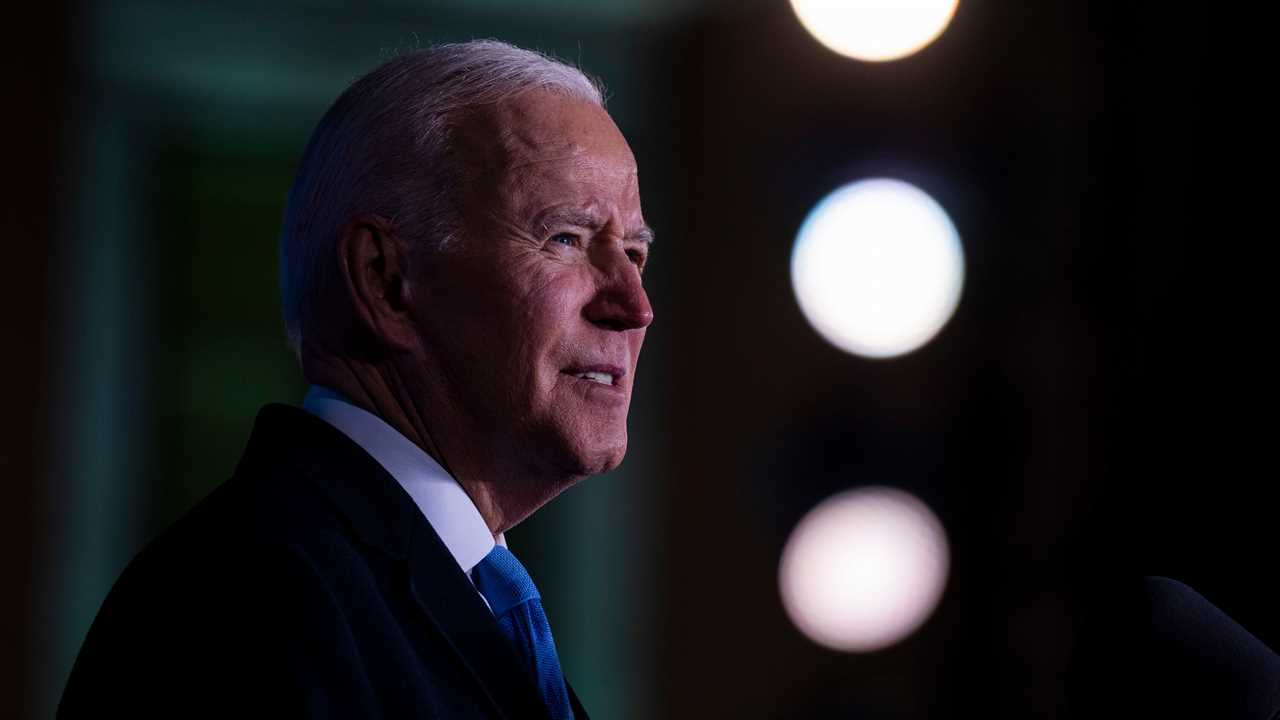
President Biden proposed a $5.8 trillion budget on Monday, a request that reflected the growing security and economic concerns at home and overseas, with billions set aside to invest in police departments and the military along with new taxes on the wealthiest Americans.
In the second budget request of his presidency, Mr. Biden proposed spending roughly $1.6 trillion on domestic investments for fiscal year 2023 — a 7 percent increase over current levels — including additional funding for affordable housing, anti-gun violence initiatives and manufacturing investments to address supply chain issues that have helped fuel rapid inflation.
While the White House budget is simply a request to Congress, which controls the government’s purse strings, it is a snapshot of a president’s priorities and where an administration wants to direct its energies going forward.
Mr. Biden’s latest proposal echoed the pivot he made during his State of the Union address, where he reframed a domestic agenda that focused less on the sweeping aspirations of his first year in office and moreso prioritized issues that are worrying voters ahead of the midterm elections — including rising consumer prices, crime and health care. That shift is a nod to centrist Democrats, who have called on the White House to prioritize immediate issues as the party heads into what is expected to be a tough fight to keep control of the House and Senate.
“It makes prudent investments in economic growth or equitable economy, while making sure corporations and the very wealthy pay their fair share,” Mr. Biden said on Monday during remarks at the White House.
The president added his budget focuses on domestic and foreign security. “The answer is not to defund our police departments. It’s to fund our police and give them all the tools they need,” Mr. Biden said.
The administration, which has sought distance itself from progressive calls to divest in police and thwart Republican attacks over rising crime, proposed $30 billion for police departments and community-based anti-violence programs, while setting aside $367 million for the Justice Department to support police reform, prosecute hate crimes and protect voting rights.
The budget also includes more than $17 billion to crack down on gun trafficking and nearly $70 billion for the FBI to drive down violent crime.
The president said he wanted to strike the balance between driving down crime and criminal justice reform, even as funding for law enforcement agencies eclipsed more alternative community-based safety programs.
“They need psychologists in the department as much as they need extra rifles,” Mr. Biden said. “They need people who are in the department who can deal with the crisis that the police are going through as well.”
But the budget also reflected the uncertainty of Mr. Biden’s domestic agenda amid a slim majority in Congress. The administration avoided offering price tags or revenue assessments for some of its domestic proposals such as expanding health care coverage, addressing the high cost of prescription drugs and directing spending toward climate change and child care. Shalanda D. Young, the director of the Office of Management and Budget, said the omission was intentional “to leave a space for revenues specifically to allow congressional negotiators the room to do what President Biden has asked.”
The budget will also seek additional funding to help combat the international crisis created by Russia’s invasion of Ukraine, which threatens to slow the global economy.
Mr. Biden will request $773 billion in Defense Department spending, including funding to detect and intercept missile strikes from hostile territories like North Korea and Iran, along with $6.9 billion to help NATO counter threats from Russia and elsewhere in the wake of the war launched by President Vladimir V. Putin. Mr. Biden also asked for $4.1 billion to conduct research and develop defense capabilities, nearly $5 billion for a space-based missile warning system to detect global threats and nearly $2 billion for a missile defense interceptor to protect the United States against ballistic missile threats from states like North Korea and Iran.
Mr. Biden also called for new taxes on the rich, including a minimum tax on billionaires. That proposal, which needs congressional approval, would require that American households worth more than $100 million pay a rate of at least 20 percent on their income as well as unrealized gains in the value of their liquid assets, such as stocks and bonds, which can accumulate value for years but are taxed only when they are sold. The $360 billion in tax revenue that the White House projects that would raise could also be directed toward the president’s broader agenda.
The White House budget also calls for other tax increases on the rich. It would raise the top individual income tax rate to 39.6 percent from 37 percent. And Mr. Biden also wants to increase the corporate tax rate to 28 percent from 21 percent.
Did you miss our previous article...
https://trendinginthenews.com/usa-politics/local-election-officials-in-georgia-oppose-gop-election-bill






